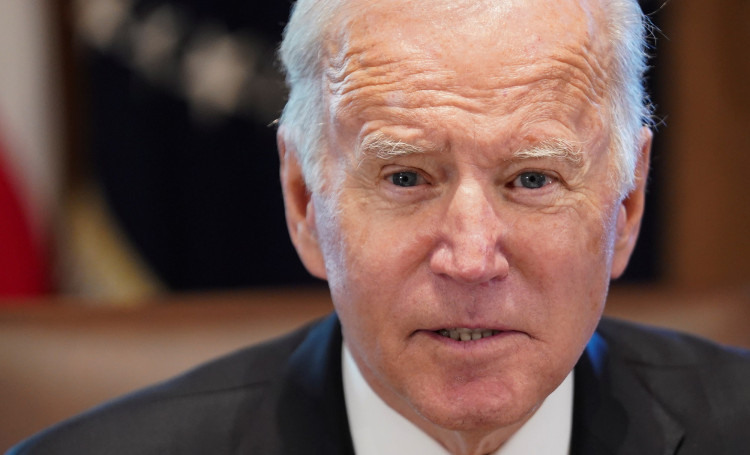U.S. President Joe Biden signed a roughly $770 billion defense bill on Monday, $24 billion more than he wanted, a blow for anti-war liberals whose attempts to raise social spending have been thwarted by Democratic moderates citing fiscal obligations.
Earlier this month, the Senate and House of Representatives passed a military bill by a wide margin, with significant backing from Republicans and Democrats for the yearly measure outlining defense policy.
Legislators boosted military expenditure in nearly every area, including fresh financing to counteract China's military expansion, steps to bolster Ukraine's defense, and billions in dollars for the procurement of modern aircraft, naval vessels, and high-tech weapons.
Additionally, the law, the National Defense Authorization Act, includes a 2.7% pay raise for the majority of service members, a widely popular feature backed by even the dozens of progressives who opposed the legislation's approval in the House.
The Act offers crucial benefits and improves access to justice for service troops and their families, as well as critical authorities to assist our country's national defense, Biden said in a statement following the bill's signing.
The NDAA is keenly observed by a large cross-section of industry and other groups since it is one of the few major pieces of legislation that becomes law each year and handles a broad range of topics. For 60 years, the NDAA has been enacted annually.
The bill, which goes into effect on Oct. 1, also modifies how the military handles many internal criminal investigations, including those involving sex crimes.
Additionally, the amendments require that the commander of a unit be removed from decision-making involving a variety of serious offenses other than sexual assault and harassment, and they necessitate separate investigations for murder, manslaughter, and kidnapping to maintain impartiality.
When House and Senate Democrats and Republicans couldn't come to an agreement on China and Russia policy, they came up with a compromise in the form of the fiscal 2022 National Defense Authorization Act, which authorizes about 5% more military spending than in the previous year.
Additionally, there are $300 million allocated to Ukraine Security Assistance Initiative, $4 billion to European Defense Initiative, and $150 million earmarked specifically for cooperation in Baltic states' security as part of the NDAA's overall budget.
Senator Jack Reed, a Democrat from Rhode Island who chairs the Armed Services Committee, hailed the bill a "victory." He went on to say that the bill gives U.S. forces the resources and support they need to defend the country.






